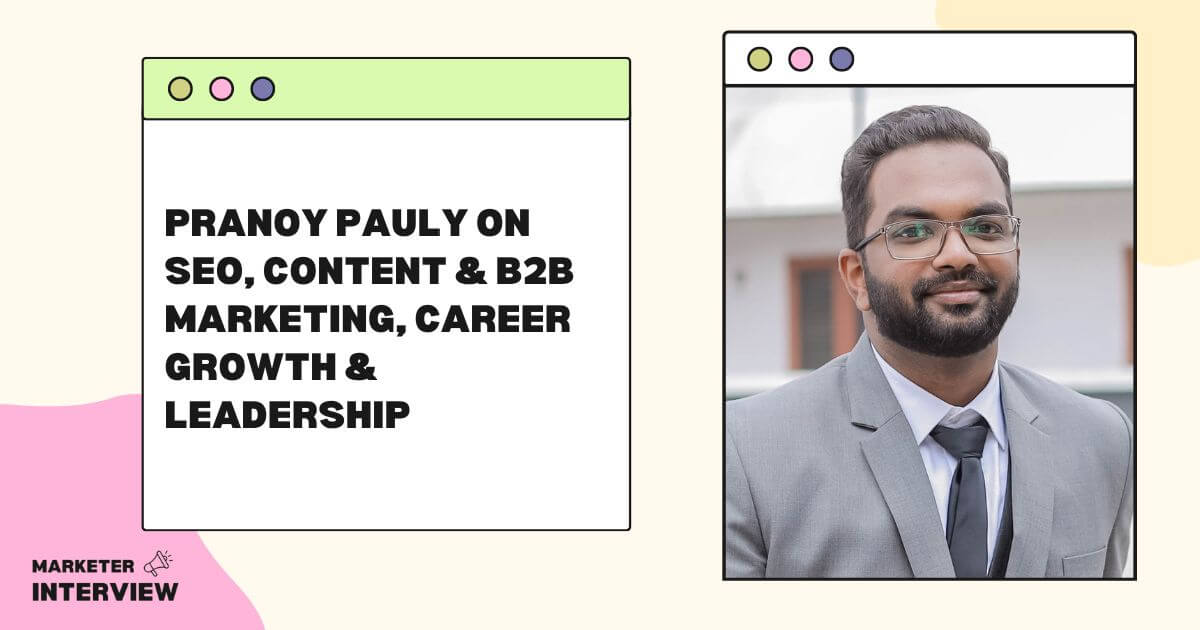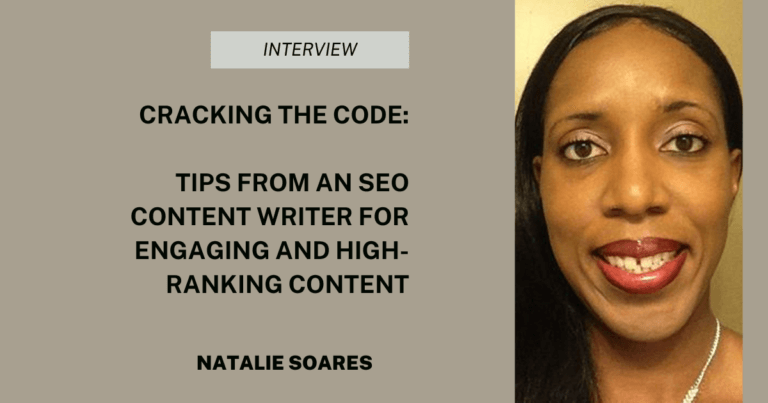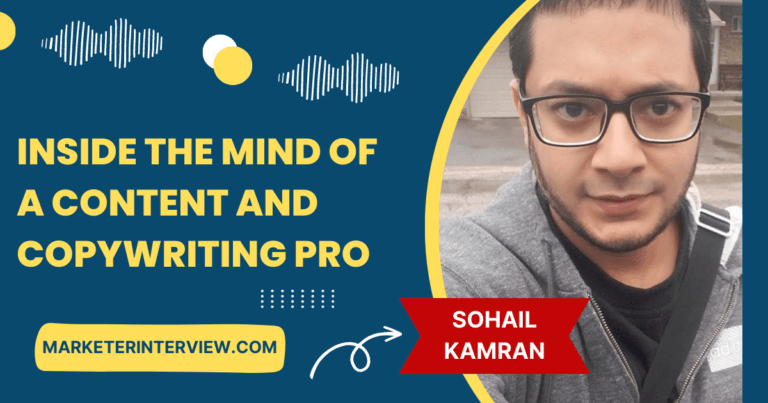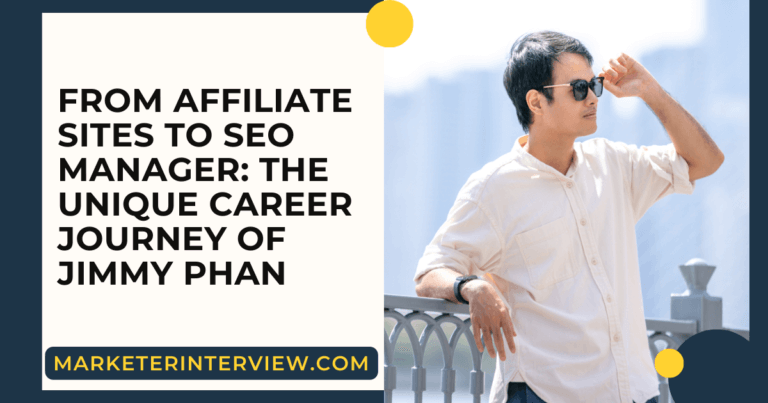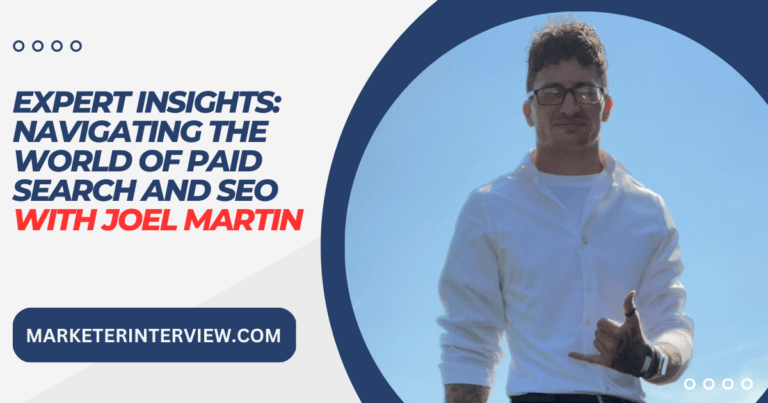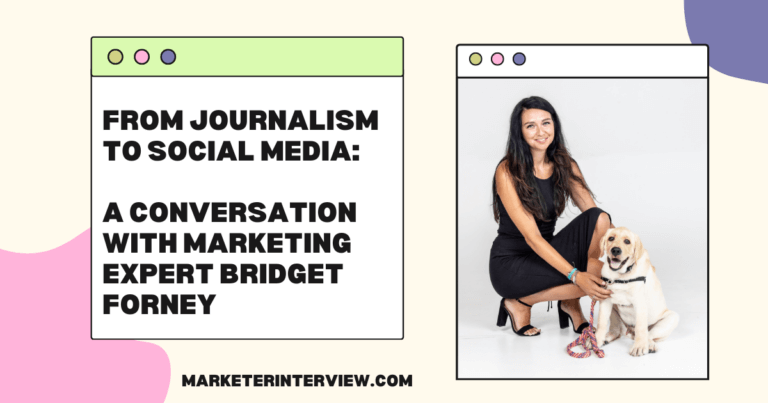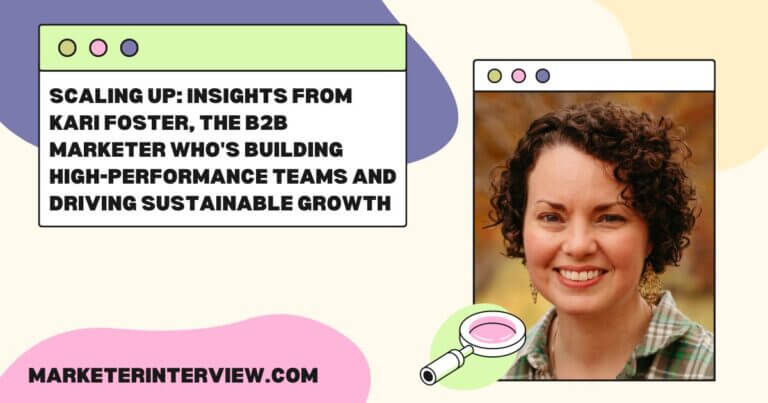Pranoy Pauly on SEO, Content & B2B Marketing, Career Growth & Leadership
Welcome to Marketer Interview!
Today, we had the pleasure of speaking with Pranoy Pauly, Senior Manager – Digital Marketing at Kovai.co – Document360. He has expertise in SEO, Content Marketing, B2B Marketing, and a passion for mentoring and leadership.
With close to 8 years of experience in the digital marketing space, Pranoy has a wealth of knowledge to share with us.
Contents
- 1 How did you get your start in the world of digital marketing?
- 2 What led you to specialize in SEO, Content & B2B Marketing?
- 3 Can you discuss a remarkably successful campaign you’ve managed? What made it successful?
- 4 How do you stay up-to-date with the constantly changing world of digital marketing?
- 5 How critical is data analysis in your day-to-day work?
- 6 Can you talk about a challenge you faced in your career?
- 7 How do you approach leadership and mentorship within your team?
- 8 What advice would you give someone starting in the digital marketing field?
- 9 How has the digital marketing industry changed since you began your career?
- 10 What tools and software do you use to streamline your work and improve your results?
How did you get your start in the world of digital marketing?
My interest in the internet and its ever-changing landscape led to the industry. Reaching out to someone on the other side of the globe was truly impressive!
I used to blog during college and managed a few tech-related social pages. Unfortunately, those projects failed with time. However, those failures did give me validation for where I’d like to start my career.
Post-college, I started my career as an off-page SEO specialist in a digital marketing agency in Kerala, India (their head office was in Toronto).
What led you to specialize in SEO, Content & B2B Marketing?
I like complex things which include a lot of research 😀
SEO as a channel was always interesting to me. When I first laid my hands on Google’s search engine, I used to think that someone at the backend was replying to my search queries. It was only later that I realized how complex a search engine was.
I’d first answer why SEO & Content.
When I started as an off-page SEO specialist, my primary role was link building. It was exciting; however, I wanted to get my hands on learning more.
I had the opportunity to work with Steve Toth (Creator of SEO Notebook) in my first organization. I ventured into content marketing and other advanced projects as the company grew.
I was fortunate to get this opportunity. It made me understand how crucial content was for all marketing activities, and I kept learning more about it.
My entry in B2B:
I spent half of my career working with agencies. Working in an agency gives you exposure to different kinds of projects. I worked on 150+ projects during the years with various agencies.
I was looking for a role that would let me understand my target audience better. With time, I realized I wanted to carve out a niche specialize accordingly.
I wanted opportunities that would allow me to collaborate with multiple teams, understand my customers better, get insightful data, and contribute directly to top-line numbers.
In search of the perfect niche, I joined a SaaS company that was into customer support products. My learnings & contributions have since then been on a roll!
P.S. I moved to another SaaS company after that.
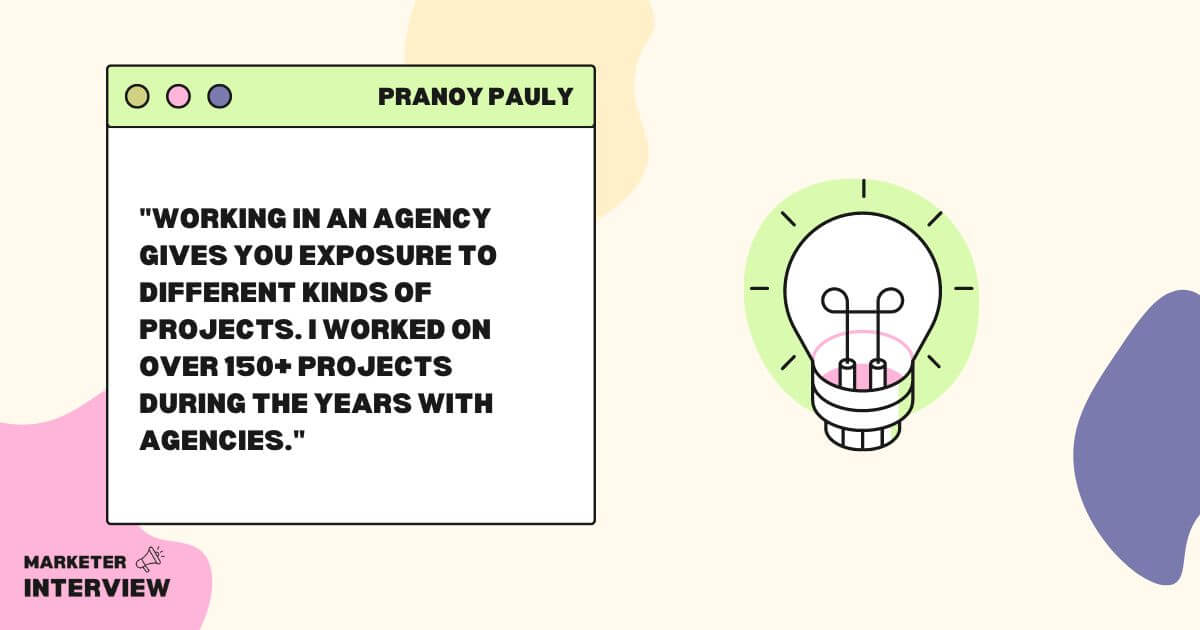
Can you discuss a remarkably successful campaign you’ve managed? What made it successful?
Over the years, the digital marketing space has changed drastically. Gone are the days when ranking your website or running an advertisement was enough to drive leads or customers.
One of my core objectives while working on any project is to increase its visibility. Therefore, I firmly believe in HubSpot’s Surround Sound Strategy. It says, “The more frequently someone hears about your product from multiple sources, the more likely they are to buy it.”
One such successful campaign that I’d like to share is about one of the SaaS products I have worked on. Initially, the product lacked visibility. Our target audience did not know that the product existed.
We wanted to change this, and our basic concept for execution was to be visible everywhere a customer searches for us. So we initially started implementing the Surround Sound Strategy to improve our presence on SERP.
We also hosted events, conducted webinars, engaged with our ICPs across social channels, & sponsored events that our ICPs attended.
Some of the activities are a long shot. However, we did see results coming in— In a span of 12 months, our brand name’s search query doubled.
How do you stay up-to-date with the constantly changing world of digital marketing?
I do keep a regular watch on blogs like SEJ, SearchEngineLand, etc. However, LinkedIn, Reddit, and Slack are my go-to platforms to stay updated.
I regularly watch out for updates from Steve Toth, Koray Tuğberk GÜBÜR, Aleyda Solís, Emilia Korczynska, Daniel Foley Carter, and Brendan Hufford.
How critical is data analysis in your day-to-day work?
Data is the bread and butter of everything I do currently. It’s very crucial for understanding user behavior before and after acquisition.
This kind of data helps to optimize marketing activities and drive better results for the business.
Can you talk about a challenge you faced in your career?
As I grew, the most common challenge I faced was making stakeholders or fellow teams understand my perspective. Initially, I would offer a technical explanation and come back with a not-so-good response or rejection on a proposal.
But with time, I realized the problem and shifted towards a storytelling mode. So now, when discussing agendas, I have a more practical and logical narrative backed by factual data.
How do you approach leadership and mentorship within your team?
I don’t believe in berating my team members.
Instead, I prefer maintaining a positive and respectful work environment where my team feels comfortable approaching me with their questions. By avoiding a negative or punitive approach, I aim to promote a culture of collaboration and mutual respect within my team.
I prefer a leadership and mentorship style that encourages my team members to learn through curiosity and initiative. Curiosity is what drives people ahead in their careers. I do not spoon-feed.
This approach helps cultivate a culture of self-learning and independent problem-solving within the team. It can lead to deeper understanding and engagement among team members.
My leadership style aims to balance independence and support, fostering a culture of continuous learning and growth within your team. And I ensure that everyone feels valuable in the group.
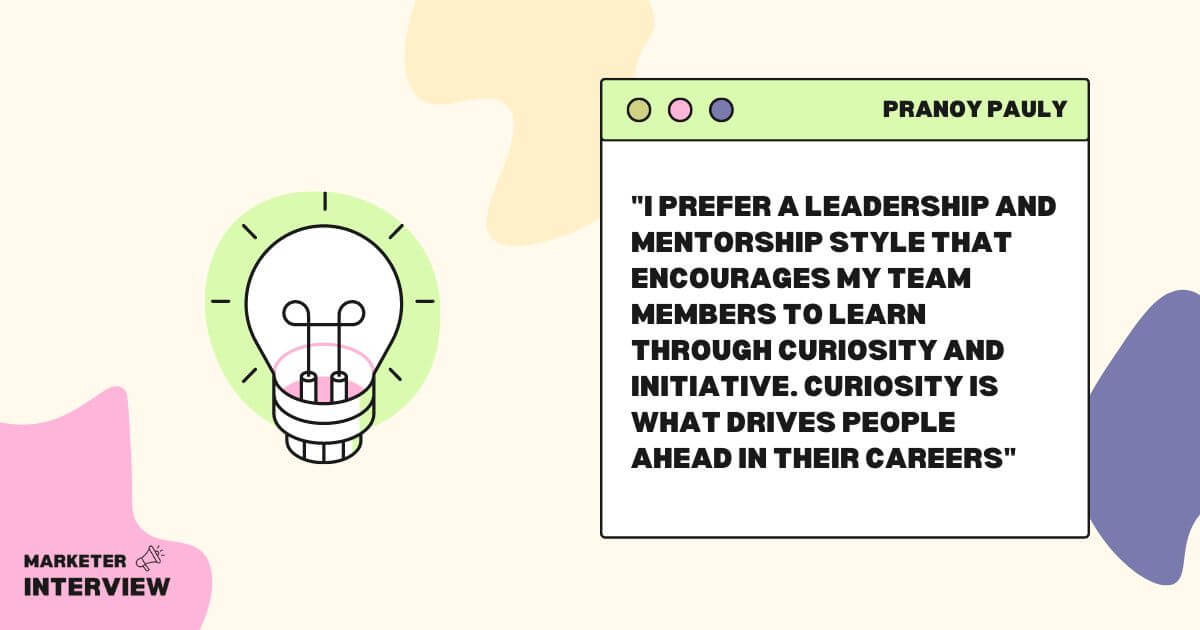
What advice would you give someone starting in the digital marketing field?
Don’t try to be a jack of all channels in digital marketing. This is something one of my previous managers, Manish Chauhan, repeatedly stresses.
You require different types of soft skills to succeed in the space. You will have to initially figure out what channel you are interested in and grow from there.
Even though you can’t be a jack of all trades, you should be aware of other channels and how they fit in across the marketing universe. This will help you get a broader perspective of things.
How has the digital marketing industry changed since you began your career?
When I started, the digital marketing space was more like a 9 – 6 desk job where you did the same thing repeatedly.
Today, the industry has changed. It’s more like a testing field; deciding what to test first is the biggest challenge. Users have become more competent, and it demands you to understand the target audience better.
It’s no longer a keyword game. Instead, it’s more of a combination of brand + visibility + value proposition + core business values.
What tools and software do you use to streamline your work and improve your results?
My tech stack is simple enough.
I use Ahrefs, SEMRush, HotJar, Search Console, ScreamingFrog, Google Analytics, and the new entrant ChatGPT to stay ahead in the game 👍
